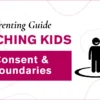Addressing Children Unaware of the Decision
If so, you can skip this step if you like, as it applies more to those families who have decided to homeschool but their children do not know it yet. If your children were unaware of your research, they will be in for a shock. Reasons may be:
- It is highly unlikely that they are aware of homeschooling or even considered it for themselves.
- They don’t want to leave school due to their school friends or extracurricular activities.
- Fear of being looked upon as weird.
You are going to need to reassure them. Set up alternative ways for them to still enjoy the few things about school that they do enjoy. You will find that most children don’t like school and are willing to embrace an alternative, but there may be a few things that they miss, like their friends and sports. Organize for them to still meet their friends after school or on weekends, enroll them in sporting activities outside of schools, and reassure them that homeschooling will not deprive them of all this. If anything, it will give them more time for fun and sports.
Offering Useful Suggestions for a Smooth Transition
Have a sit-down meeting with your children to explain everything to them. Explain to them the advantages of homeschooling, and show them how it will benefit them as individuals. Let them know that:
- Through homeschooling, they will be able to study at their own pace.
- Give more time to subjects that interest them.
- Study things outside the syllabus.
- Wake up a bit later.
- Have shorter schooling hours.
- Enjoy a less restrictive learning environment.
- Gain protection from bullies, peer pressure, and bad teachers.
These points alone should sell them on the idea of homeschooling. Honestly speaking, though, most children can’t stand school and only go because they are forced to do so. Chances are that if you give them any alternative, they’ll jump right into it without much explanation needed.
Clarifying Expectations from the Start
Make your expectations clear. Some parents worry about how they are going to control their children and keep them disciplined through homeschooling. They fear that the children will just play all day and learn nothing and eventually fall behind. This can be avoided with basic parenting skills, which start with making your expectations clear during the initial family meeting. Let them know from day one what the ground rules are, what you expect from them in terms of hours and learning, and the consequences of them not taking this seriously.
Balancing Firmness with Gentleness
Of course, you don’t want to scare them off or make them think it’s going to be more intimidating and stricter than school itself. You just want to make your expectations clear in a firm yet gentle way. This is how parenting should be—firm yet gentle—not too soft that it leads to spoiling, not too harsh that it leads to rebellion.
Understanding Children’s Response to Rules
I find that children appreciate clear expectations; it makes them know beforehand what their limits are, and they often will push themselves to those exact limits, and when in a rascally mood, a bit beyond. Remember that by choosing to homeschool, you are taking on the dual role of teacher and parent, and so it means some changes in your relationship with your children. If you have been too controlling in the past, you will need to loosen up a bit. If you have been too soft, you will need to be a bit firmer.
Establishing Clear Rules and Consequences
Along with expectations, there must be clear rules in place to ground these expectations. School times should be made clear, as well as subjects, rewards for exceptional work, and disciplinary measures taken for breaking the rules. Remember that discipline does not mean hitting. There are many more humane ways to discipline a child, and especially as their teacher, you will want to avoid any form of hitting, as it will just create a hostile learning environment and lead to rebelliousness.
Using Positive Discipline Methods
Disciplinary measures that work for me are simple ones like not allowing them to play PlayStation for a day or not eating out as a family that week. These things are precious enough to the kids that they will get their work done in order to protect their favorite activities. There really is no need for hitting a child, as there are so many other ways to teach them right from wrong.
Encouraging Questions and Input
One way to ease this shift is to invite your children to ask questions or share their thoughts about homeschooling. Let them voice what excites them or worries them—it shows you value their perspective. Answer honestly, maybe even brainstorm together how to make it fun, like picking a new project they’d love. It’s a small step, but it builds trust and gets them on board with “homeschooling informing the kids.”
Conclusion
Keep it positive. This is basically all you will need to discuss with your children beforehand. Let them know about the change in lifestyle, the benefits, the expectations, and the rules. Keep things light and positive, and let them feel and know that it is a positive change for the family, and one that will benefit them more than it will benefit anybody else. Doing this will make the child’s move from schooling to homeschooling smoother and a positive experience.








